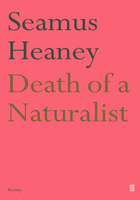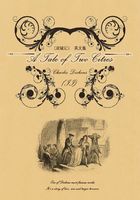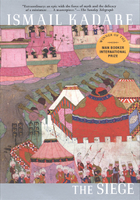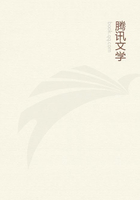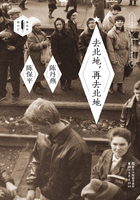Part 1
THIRTY YEARS AGO, Marseilles lay burning in the sun, one day.
A blazing sun upon a fierce August day was no greater rarity in southern France then, than at any other time, before or since. Everything in Marseilles, and about Marseilles, had stared at the fervid sky, and been stared at in return, until a staring habit had become universal there. Strangers were stared out of countenance by staring white houses, staring white walls, staring white streets, staring tracts of arid road, staring hills from which verdure was burnt away. The only things to be seen not fixedly staring and glaring were the vines drooping under their load of grapes. These did occasionally wink a little, as the hot air barely moved their faint leaves.
There was no wind to make a ripple on the foul water within the harbour, or on the beautiful sea without. The line of demarcation between the two colours, black and blue, showed the point which the pure sea would not pass; but it lay as quiet as the abominable pool, with which it never mixed. Boats without awnings were too hot to touch; ships blistered at their moorings; the stones of the quays had not cooled, night or day, for months. Hindoos, Russians, Chinese, Spaniards, Portuguese, Englishmen, Frenchmen, Genoese, Neapolitans, Venetians, Greeks, Turks, descendants from all the builders of Babel, come to trade at Marseilles, sought the shade alike-taking refuge in any hiding-place from a sea too intensely blue to be looked at, and a sky of purple, set with one great flaming jewel of fire.
The universal stare made the eyes ache. Towards the distant line of Italian coast, indeed, it was a little relieved by light clouds of mist, slowly rising from the evaporation of the sea, but it softened nowhere else. Far away the staring roads, deep in dust, stared from the hill-side, stared from the hollow, stared from the interminable plain. Far away the dusty vines overhanging wayside cottages, and the monotonous wayside avenues of parched trees without shade, drooped beneath the stare of earth and sky. So did the horses with drowsy bells, in long files of carts, creeping slowly towards the interior; so did their recumbent drivers, when they were awake, which rarely happened; so did the exhausted labourers in the fields. Everything that lived or grew, was oppressed by the glare; except the lizard, passing swiftly over rough stone walls, and the cicada, chirping his dry hot chirp, like a rattle. The very dust was scorched brown, and something quivered in the atmosphere as if the air itself were panting.
Blinds, shutters, curtains, awnings, were all closed and drawn to keep out the stare. Grant it but a chink or keyhole, and it shot in like a white-hot arrow. The churches were the freest from it. To come out of the twilight of pillars and arches-dreamily dotted with winking lamps, dreamily peopled with ugly old shadows piously dozing, spitting, and begging-was to plunge into a fiery river, and swim for life to the nearest strip of shade. So, with people lounging and lying wherever shade was, with but little hum of tongues or barking of dogs, with occasional jangling of discordant church bells and rattling of vicious drums, Marseilles, a fact to be strongly smelt and tasted, lay broiling in the sun one day. In Marseilles that day there was a villainous prison. In one of its chambers, so repulsive a place that even the obtrusive stare blinked at it, and left it to such refuse of reflected light as it could find for itself, were two men. Besides the two men, a notched and disfigured bench, immovable from the wall, with a draught-board rudely hacked upon it with a knife, a set of draughts, made of old buttons and soup bones, a set of dominoes, two mats, and two or three wine bottles. That was all the chamber held, exclusive of rats and other unseen vermin, in addition to the seen vermin, the two men.
It received such light as it got through a grating of iron bars fashioned like a pretty large window, by means of which it could be always inspected from the gloomy staircase on which the grating gave. There was a broad strong ledge of stone to this grating where the bottom of it was let into the masonry, three or four feet above the ground. Upon it, one of the two men lolled, half sitting and half lying, with his knees drawn up, and his feet and shoulders planted against the opposite sides of the aperture. The bars were wide enough apart to admit of his thrusting his arm through to the elbow; and so he held on negligently, for his greater ease.
A prison taint was on everything there. The imprisoned air, the imprisoned light, the imprisoned damps, the imprisoned men, were all deteriorated by confinement. As the captive men were faded and haggard, so the iron was rusty, the stone was slimy, the wood was rotten, the air was faint, the light was dim. Like a well, like a vault, like a tomb, the prison had no knowledge of the brightness outside, and would have kept its polluted atmosphere intact in one of the spice islands of the Indian ocean.
The man who lay on the ledge of the grating was even chilled. He jerked his great cloak more heavily upon him by an impatient movement of one shoulder, and growled, 'To the devil with this Brigand of a Sun that never shines in here!'
He was waiting to be fed, looking sideways through the bars that he might see the further down the stairs, with much of the expression of a wild beast in similar expectation. But his eyes, too close together, were not so nobly set in his head as those of the king of beasts are in his, and they were sharp rather than bright-pointed weapons with little surface to betray them. They had no depth or change; they glittered, and they opened and shut. So far, and waiving their use to himself, a clockmaker could have made a better pair. He had a hook nose, handsome after its kind, but too high between the eyes by probably just as much as his eyes were too near to one another. For the rest, he was large and tall in frame, had thin lips, where his thick moustache showed them at all, and a quantity of dry hair, of no definable colour in its shaggy state, but shot with red. The hand with which he held the grating (seamed all over the back with ugly scratches newly healed), was unusually small and plump; would have been unusually white but for the prison grime. The other man was lying on the stone floor, covered with a coarse brown coat.
'Get up, pig!' growled the first. 'Don't sleep when I am hungry.'
'It's all one, master,' said the pig, in a submissive manner, and not without cheerfulness; 'I can wake when I will, I can sleep when I will. It's all the same.'
As he said it, he rose, shook himself, scratched himself, tied his brown coat loosely round his neck by the sleeves (he had previously used it as a coverlet), and sat down upon the pavement yawning, with his back against the wall opposite to the grating.
'Say what the hour is,' grumbled the first man.
'The mid-day bells will ring-in forty minutes.' When he made the little pause, he had looked round the prison-room, as if for certain information.
'You are a clock. How is it that you always know?'
'How can I say? I always know what the hour is, and where I am. I was brought in here at night, and out of a boat, but I know where I am. See here! Marseilles Harbour;' on his knees on the pavement, mapping it all out with a swarthy forefinger; 'Toulon (where the galleys are), Spain over there, Algiers over there. Creeping away to the left here, Nice. Round by the Cornice to Genoa. Genoa Mole and Harbour: Quarantine Ground. City there; terrace gardens blushing with the bella donna. Here, Porto Fino. Stand out for Leghorn. Out again for Civita Vecchia. so away to-hey! there's no room for Naples;' he had got to the wall by this time; 'but it's all one; it's in there!'
He remained on his knees, looking up at his fellow-prisoner with a lively look for a prison. A sunburnt, quick, lithe, little man, though rather thickset. Earrings in his brown ears, white teeth lighting up his grotesque brown face, intensely black hair clustering about his brown throat, a ragged red shirt open at his brown breast. Loose, seaman-like trousers, decent shoes, a long red cap, a red sash round his waist, and a knife in it.
'Judge if I come back from Naples as I went! See here, my master! Civita Vecchia, Leghorn, Porto Fino, Genoa, Cornice, Off Nice (which is in there), Marseilles, you and me. The apartment of the jailer and his keys is where I put this thumb; and here at my wrist they keep the national razor in its case-the guillotine locked up.'
The other man spat suddenly on the pavement, and gurgled in his throat.
Some lock below gurgled in its throat immediately afterwards, and then a door crashed. Slow steps began ascending the stairs; the prattle of a sweet little voice mingled with the noise they made; and the prison-keeper appeared carrying his daughter, three or four years old, and a basket.
'How goes the world this forenoon, gentlemen? My little one, you see, going round with me to have a peep at her father's birds. Fie, then! Look at the birds, my pretty, look at the birds.'
He looked sharply at the birds himself, as he held the child up at the grate, especially at the little bird, whose activity he seemed to mistrust. 'I have brought your bread, Signor John Baptist,' said he (they all spoke in French, but the little man was an Italian); 'and if I might recommend you not to game-'
'You don't recommend the master!' said John Baptist, showing his teeth as he smiled.
'Oh! but the master wins,' returned the jailer, with a passing look of no particular liking at the other man, 'and you lose. It's quite another thing. You get husky bread and sour drink by it; and he gets sausage of Lyons, veal in savoury jelly, white bread, strachino cheese, and good wine by it. Look at the birds, my pretty!'
'Poor birds!' said the child.
The fair little face, touched with divine compassion, as it peeped shrinkingly through the grate, was like an angel's in the prison. John Baptist rose and moved towards it, as if it had a good attraction for him. The other bird remained as before, except for an impatient glance at the basket.
'Stay!' said the jailer, putting his little daughter on the outer ledge of the grate, 'she shall feed the birds. This big loaf is for Signor John Baptist. We must break it to get it through into the cage. So, there's a tame bird to kiss the little hand! This sausage in a vine leaf is for Monsieur Rigaud. Again-this veal in savoury jelly is for Monsieur Rigaud. Again-these three white little loaves are for Monsieur Rigaud. Again, this cheese-again, this wine-again, this tobacco-all for Monsieur Rigaud. Lucky bird!'
The child put all these things between the bars into the soft, Smooth, well-shaped hand, with evident dread-more than once drawing back her own and looking at the man with her fair brow roughened into an expression half of fright and half of anger. Whereas she had put the lump of coarse bread into the swart, scaled, knotted hands of John Baptist (who had scarcely as much nail on his eight fingers and two thumbs as would have made out one for Monsieur Rigaud) with ready confidence; and, when he kissed her hand, had herself passed it caressingly over his face. Monsieur Rigaud, indifferent to this distinction, propitiated the father by laughing and nodding at the daughter as often as she gave him anything; and, so soon as he had all his viands about him in convenient nooks of the ledge on which he rested, began to eat with an appetite.
When Monsieur Rigaud laughed, a change took place in his face, that was more remarkable than prepossessing. His moustache went up under his nose, and his nose came down over his moustache, in a very sinister and cruel manner.
'There!' said the jailer, turning his basket upside down to beat the crumbs out, 'I have expended all the money I received; here is the note of it, and that's a thing accomplished. Monsieur Rigaud, as I expected yesterday, the President will look for the pleasure of your society at an hour after mid-day, to-day.'
'To try me, eh?' said Rigaud, pausing, knife in hand and morsel in mouth.
'You have said it. To try you.'
'There is no news for me?' asked John Baptist, who had begun, contentedly, to munch his bread.
The jailer shrugged his shoulders.
'Lady of mine! Am I to lie here all my life, my father?'
'What do I know!' cried the jailer, turning upon him with southern quickness, and gesticulating with both his hands and all his fingers, as if he were threatening to tear him to pieces. 'My friend, how is it possible for me to tell how long you are to lie here? What do I know, John Baptist Cavalletto? Death of my life! There are prisoners here sometimes, who are not in such a devil of a hurry to be tried.' He seemed to glance obliquely at Monsieur Rigaud in this remark; but Monsieur Rigaud had already resumed his meal, though not with quite so quick an appetite as before.
'Adieu, my birds!' said the keeper of the prison, taking his pretty child in his arms, and dictating the words with a kiss.
'Adieu, my birds!' the pretty child repeated.
Her innocent face looked back so brightly over his shoulder, as he walked away with her, singing her the song of the child's game:
'Who passes by this road so late?
Compagnon de la Majolaine!
Who passes by this road so late?
Always gay!'
that John Baptist felt it a point of honour to reply at the grate, and in good time and tune, though a little hoarsely:
'Of all the king's knights 'tis the flower,
Compagnon de la Majolaine!
Of all the king's knights 'tis the flower,
Always gay!'
which accompanied them so far down the few steep stairs, that the prison-keeper had to stop at last for his little daughter to hear the song out, and repeat the Refrain while they were yet in sight. Then the child's head disappeared, and the prison-keeper's head disappeared, but the little voice prolonged the strain until the door clashed.
Monsieur Rigaud, finding the listening John Baptist in his way before the echoes had ceased (even the echoes were the weaker for imprisonment, and seemed to lag), reminded him with a push of his foot that he had better resume his own darker place. The little man sat down again upon the pavement with the negligent ease of one who was thoroughly accustomed to pavements; and placing three hunks of coarse bread before himself, and falling to upon a fourth, began contentedly to work his way through them as if to clear them off were a sort of game.
Perhaps he glanced at the Lyons sausage, and perhaps he glanced at the veal in savoury jelly, but they were not there long, to make his mouth water; Monsieur Rigaud soon dispatched them, in spite of the president and tribunal, and proceeded to suck his fingers as clean as he could, and to wipe them on his vine leaves. Then, as he paused in his drink to contemplate his fellow-prisoner, his moustache went up, and his nose came down.
'How do you find the bread?'
'A little dry, but I have my old sauce here,' returned John Baptist, holding up his knife. 'How sauce?'
'I can cut my bread so-like a melon. Or so-like an omelette. Or so-like a fried fish. Or so-like Lyons sausage,' said John Baptist, demonstrating the various cuts on the bread he held, and soberly chewing what he had in his mouth.
'Here!' cried Monsieur Rigaud. 'You may drink. You may finish this.'
It was no great gift, for there was mighty little wine left; but Signor Cavalletto, jumping to his feet, received the bottle gratefully, turned it upside down at his mouth, and smacked his lips.
'Put the bottle by with the rest,' said Rigaud.
The little man obeyed his orders, and stood ready to give him a lighted match; for he was now rolling his tobacco into cigarettes by the aid of little squares of paper which had been brought in with it.
'Here! You may have one.'
'A thousand thanks, my master!' John Baptist said in his own language, and with the quick conciliatory manner of his own countrymen.
Monsieur Rigaud arose, lighted a cigarette, put the rest of his stock into a breast-pocket, and stretched himself out at full length upon the bench. Cavalletto sat down on the pavement, holding one of his ankles in each hand, and smoking peacefully. There seemed to be some uncomfortable attraction of Monsieur Rigaud's eyes to the immediate neighbourhood of that part of the pavement where the thumb had been in the plan. They were so drawn in that direction, that the Italian more than once followed them to and back from the pavement in some surprise.
'What an infernal hole this is!' said Monsieur Rigaud, breaking a long pause. 'Look at the light of day. Day? the light of yesterday week, the light of six months ago, the light of six years ago. So slack and dead!'
It came languishing down a square funnel that blinded a window in the staircase wall, through which the sky was never seen-nor anything else.
'Cavalletto,' said Monsieur Rigaud, suddenly withdrawing his gaze from this funnel to which they had both involuntarily turned their eyes, 'you know me for a gentleman?'
'Surely, surely!'
'How long have we been here?'
'I, eleven weeks, to-morrow night at midnight. You, nine weeks and three days, at five this afternoon.'
'Have I ever done anything here? Ever touched the broom, or spread the mats, or rolled them up, or found the draughts, or collected the dominoes, or put my hand to any kind of work?'
'Never!'
'Have you ever thought of looking to me to do any kind of work?'
John Baptist answered with that peculiar back-handed shake of the right forefinger which is the most expressive negative in the Italian language.
'No! You knew from the first moment when you saw me here, that I was a gentleman?'
'ALTRO!' returned John Baptist, closing his eyes and giving his head a most vehement toss. The word being, according to its Genoese emphasis, a confirmation, a contradiction, an assertion, a denial, a taunt, a compliment, a joke, and fifty other things, became in the present instance, with a significance beyond all power of written expression, our familiar English 'I believe you!'
'Haha! You are right! A gentleman I am! And a gentleman I'll live, and a gentleman I'll die! It's my intent to be a gentleman. It's my game. Death of my soul, I play it out wherever I go!'
He changed his posture to a sitting one, crying with a triumphant air:
'Here I am! See me! Shaken out of destiny's dice-box into the company of a mere smuggler;-shut up with a poor little contraband trader, whose papers are wrong, and whom the police lay hold of besides, for placing his boat (as a means of getting beyond the frontier) at the disposition of other little people whose papers are wrong; and he instinctively recognises my position, even by this light and in this place. It's well done! By Heaven! I win, however the game goes.'
Again his moustache went up, and his nose came down.
'What's the hour now?' he asked, with a dry hot pallor upon him, rather difficult of association with merriment.
'A little half-hour after mid-day.'
'Good! The President will have a gentleman before him soon. Come!
Shall I tell you on what accusation? It must be now, or never, for I shall not return here. Either I shall go free, or I shall go to be made ready for shaving. You know where they keep the razor.'
Signor Cavalletto took his cigarette from between his parted lips, and showed more momentary discomfiture than might have been expected.
'I am a'-Monsieur Rigaud stood up to say it-'I am a cosmopolitan gentleman. I own no particular country. My father was Swiss-Canton de Vaud. My mother was French by blood, English by birth. I myself was born in Belgium. I am a citizen of the world.'
His theatrical air, as he stood with one arm on his hip within the folds of his cloak, together with his manner of disregarding his companion and addressing the opposite wall instead, seemed to intimate that he was rehearsing for the President, whose examination he was shortly to undergo, rather than troubling himself merely to enlighten so small a person as John Baptist Cavalletto.
'Call me five-and-thirty years of age. I have seen the world. I have lived here, and lived there, and lived like a gentleman everywhere. I have been treated and respected as a gentleman universally. If you try to prejudice me by making out that I have lived by my wits-how do your lawyers live-your politicians-your intriguers-your men of the Exchange?'
He kept his small smooth hand in constant requisition, as if it were a witness to his gentility that had often done him good service before.
'Two years ago I came to Marseilles. I admit that I was poor; I had been ill. When your lawyers, your politicians, your intriguers, your men of the Exchange fall ill, and have not scraped money together, they become poor. I put up at the Cross of Gold,-kept then by Monsieur Henri Barronneau-sixty-five at least, and in a failing state of health. I had lived in the house some four months when Monsieur Henri Barronneau had the misfortune to die;-at any rate, not a rare misfortune, that. It happens without any aid of mine, pretty often.'
John Baptist having smoked his cigarette down to his fingers' ends, Monsieur Rigaud had the magnanimity to throw him another. He lighted the second at the ashes of the first, and smoked on, looking sideways at his companion, who, preoccupied with his own case, hardly looked at him.
'Monsieur Barronneau left a widow. She was two-and-twenty. She had gained a reputation for beauty, and (which is often another thing) was beautiful. I continued to live at the Cross of Gold. I married Madame Barronneau. It is not for me to say whether there was any great disparity in such a match. Here I stand, with the contamination of a jail upon me; but it is possible that you may think me better suited to her than her former husband was.'
He had a certain air of being a handsome man-which he was not; and a certain air of being a well-bred man-which he was not. It was mere swagger and challenge; but in this particular, as in many others, blustering assertion goes for proof, half over the world.
'Be it as it may, Madame Barronneau approved of me. That is not to prejudice me, I hope?'
His eye happening to light upon John Baptist with this inquiry, that little man briskly shook his head in the negative, and repeated in an argumentative tone under his breath, altro, altro, altro, altro-an infinite number of times.
'Now came the difficulties of our position. I am proud. I say nothing in defence of pride, but I am proud. It is also my character to govern. I can't submit; I must govern. Unfortunately, the property of Madame Rigaud was settled upon herself. Such was the insane act of her late husband. More unfortunately still, she had relations. When a wife's relations interpose against a husband who is a gentleman, who is proud, and who must govern, the consequences are inimical to peace. There was yet another source of difference between us. Madame Rigaud was unfortunately a little vulgar. I sought to improve her manners and ameliorate her general tone; she (supported in this likewise by her relations) resented my endeavours. Quarrels began to arise between us; and, propagated and exaggerated by the slanders of the relations of Madame Rigaud, to become notorious to the neighbours. It has been said that I treated Madame Rigaud with cruelty. I may have been seen to slap her face-nothing more. I have a light hand; and if I have been seen apparently to correct Madame Rigaud in that manner, I have done it almost playfully.'
If the playfulness of Monsieur Rigaud were at all expressed by his smile at this point, the relations of Madame Rigaud might have said that they would have much preferred his correcting that unfortunate woman seriously.
'I am sensitive and brave. I do not advance it as a merit to be sensitive and brave, but it is my character. If the male relations of Madame Rigaud had put themselves forward openly, I should have known how to deal with them. They knew that, and their machinations were conducted in secret; consequently, Madame Rigaud and I were brought into frequent and unfortunate collision. Even when I wanted any little sum of money for my personal expenses, I could not obtain it without collision-and I, too, a man whose character it is to govern! One night, Madame Rigaud and myself were walking amicably-I may say like lovers-on a height overhanging the sea. An evil star occasioned Madame Rigaud to advert to her relations; I reasoned with her on that subject, and remonstrated on the want of duty and devotion manifested in her allowing herself to be influenced by their jealous animosity towards her husband. Madame Rigaud retorted; I retorted; Madame Rigaud grew warm; I grew warm, and provoked her. I admit it. Frankness is a part of my character. At length, Madame Rigaud, in an access of fury that I must ever deplore, threw herself upon me with screams of passion (no doubt those that were overheard at some distance), tore my clothes, tore my hair, lacerated my hands, trampled and trod the dust, and finally leaped over, dashing herself to death upon the rocks below. Such is the train of incidents which malice has perverted into my endeavouring to force from Madame Rigaud a relinquishment of her rights; and, on her persistence in a refusal to make the concession I required, struggling with her-assassinating her!'
He stepped aside to the ledge where the vine leaves yet lay strewn about, collected two or three, and stood wiping his hands upon them, with his back to the light.
'Well,' he demanded after a silence, 'have you nothing to say to all that?'
'It's ugly,' returned the little man, who had risen, and was brightening his knife upon his shoe, as he leaned an arm against the wall.
'What do you mean?' John Baptist polished his knife in silence.
'Do you mean that I have not represented the case correctly?'
'Al-tro!' returned John Baptist. The word was an apology now, and stood for 'Oh, by no means!'
'What then?'
'Presidents and tribunals are so prejudiced.'
'Well,' cried the other, uneasily flinging the end of his cloak over his shoulder with an oath, 'let them do their worst!'
'Truly I think they will,' murmured John Baptist to himself, as he bent his head to put his knife in his sash.
Nothing more was said on either side, though they both began walking to and fro, and necessarily crossed at every turn. Monsieur Rigaud sometimes stopped, as if he were going to put his case in a new light, or make some irate remonstrance; but Signor Cavalletto continuing to go slowly to and fro at a grotesque kind of jog-trot pace with his eyes turned downward, nothing came of these inclinings.
By-and-by the noise of the key in the lock arrested them both. The sound of voices succeeded, and the tread of feet. The door clashed, the voices and the feet came on, and the prison-keeper slowly ascended the stairs, followed by a guard of soldiers.
'Now, Monsieur Rigaud,' said he, pausing for a moment at the grate, with his keys in his hands, 'have the goodness to come out.'
'I am to depart in state, I see?'
'Why, unless you did,' returned the jailer, 'you might depart in so many pieces that it would be difficult to get you together again. There's a crowd, Monsieur Rigaud, and it doesn't love you.'
He passed on out of sight, and unlocked and unbarred a low door in the corner of the chamber. 'Now,' said he, as he opened it and appeared within, 'come out.'
There is no sort of whiteness in all the hues under the sun at all like the whiteness of Monsieur Rigaud's face as it was then. Neither is there any expression of the human countenance at all like that expression in every little line of which the frightened heart is seen to beat. Both are conventionally compared with death; but the difference is the whole deep gulf between the struggle done, and the fight at its most desperate extremity.
He lighted another of his paper cigars at his companion's; put it tightly between his teeth; covered his head with a soft slouched hat; threw the end of his cloak over his shoulder again; and walked out into the side gallery on which the door opened, without taking any further notice of Signor Cavalletto. As to that little man himself, his whole attention had become absorbed in getting near the door and looking out at it. Precisely as a beast might approach the opened gate of his den and eye the freedom beyond, he passed those few moments in watching and peering, until the door was closed upon him.
There was an officer in command of the soldiers; a stout, serviceable, profoundly calm man, with his drawn sword in his hand, smoking a cigar. He very briefly directed the placing of Monsieur Rigaud in the midst of the party, put himself with consummate indifference at their head, gave the word 'march!' and so they all went jingling down the staircase. The door clashed-the key turned-and a ray of unusual light, and a breath of unusual air, seemed to have passed through the jail, vanishing in a tiny wreath of smoke from the cigar.
Still, in his captivity, like a lower animal-like some impatient ape, or roused bear of the smaller species-the prisoner, now left solitary, had jumped upon the ledge, to lose no glimpse of this departure. As he yet stood clasping the grate with both hands, an uproar broke upon his hearing; yells, shrieks, oaths, threats, execrations, all comprehended in it, though (as in a storm) nothing but a raging swell of sound distinctly heard.
Excited into a still greater resemblance to a caged wild animal by his anxiety to know more, the prisoner leaped nimbly down, ran round the chamber, leaped nimbly up again, clasped the grate and tried to shake it, leaped down and ran, leaped up and listened, and never rested until the noise, becoming more and more distant, had died away. How many better prisoners have worn their noble hearts out so; no man thinking of it; not even the beloved of their souls realising it; great kings and governors, who had made them captive, careering in the sunlight jauntily, and men cheering them on. Even the said great personages dying in bed, making exemplary ends and sounding speeches; and polite history, more servile than their instruments, embalming them!
At last, John Baptist, now able to choose his own spot within the compass of those walls for the exercise of his faculty of going to sleep when he would, lay down upon the bench, with his face turned over on his crossed arms, and slumbered. In his submission, in his lightness, in his good-humour, in his short-lived passion, in his easy contentment with hard bread and hard stones, in his ready sleep, in his fits and starts, altogether a true son of the land that gave him birth.
The wide stare stared itself out for one while; the Sun went down in a red, green, golden glory; the stars came out in the heavens, and the fire-flies mimicked them in the lower air, as men may feebly imitate the goodness of a better order of beings; the long dusty roads and the interminable plains were in repose-and so deep a hush was on the sea, that it scarcely whispered of the time when it shall give up its dead.

